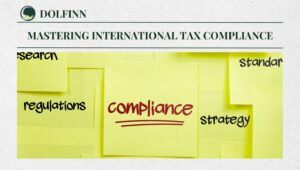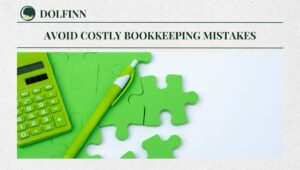
Lease Accounting in Related-Party Transactions
The world of lease accounting has undergone significant changes in recent years, thanks to the introduction of Accounting Standards Update (ASU) 2016-02. This ASU laid the groundwork for a new approach to lease accounting under ASC 842, which replaced the previous leasing guidance and introduced a more comprehensive method for lessees and lessors to recognize, measure, and disclose leases.
However, as the implementation of ASU 2016-02 evolved, the Financial Accounting Standards Board (FASB) recognized the need for refinements, technical corrections, and transition relief. One of the most notable updates came in March 2023, with the issuance of ASU 2023-01. This new standard introduces key amendments to the existing lease accounting framework, specifically focusing on arrangements between related parties under common control.
In this blog, we will break down the details of ASU 2023-01, its implications for related party transactions, and its impact on both private and not-for-profit entities. We will also provide clarity on the critical changes in leasehold improvement accounting and address frequently asked questions related to these amendments.
What is ASU 2023-01 and Why Was it Issued?
ASU 2023-01 was issued as an amendment to ASC 842, specifically addressing leasing arrangements between related parties under common control. These types of arrangements were subject to certain complexities under the original standard, particularly around determining whether a lease exists and how to account for the lease.
Prior to ASU 2023-01, entities dealing with leases between related parties often faced difficulties related to enforceability. The complexity of determining whether the lease terms were legally binding could lead to confusion, especially when the parties involved were under common control.
The FASB recognized these challenges and responded with ASU 2023-01, which introduces significant relief for non-public business entities (non-PBEs) and not-for-profit entities that are not conduit bond obligors. These entities are now allowed to make an accounting policy election to use the written terms and conditions of a common-control arrangement to determine lease existence and classification. This new provision simplifies the accounting process for related-party leases, ensuring that entities are not burdened with unnecessary legal complexities.
Key Amendments Introduced by ASU 2023-01
1. Election to Use Written Terms and Conditions for Related Party Leases
ASU 2023-01 grants non-PBEs and not-for-profit entities (that are not conduit bond obligors) the option to elect an accounting policy that allows them to rely on the written terms and conditions of a related-party lease. This election is available for leases between entities under common control.
This amendment essentially removes the requirement for these entities to evaluate the legal enforceability of the terms, as they can now use the terms laid out in their written agreements. As a result, the focus is shifted from legal enforceability to the terms agreed upon within the arrangement, simplifying the accounting process.
2. Lease Classification Flexibility
As part of the new policy election, entities can apply this simplified approach to lease classification. Under ASC 842, leases are generally classified as either operating or finance leases. The amendment allows non-PBEs and eligible not-for-profit entities to classify leases based on their written terms, reducing the need for complex legal assessments.
For example, a lease agreement between related parties that previously required extensive legal review could now be classified based on its written provisions, making the classification process more straightforward and less burdensome for entities under common control.
3. Impact on Leasehold Improvements
Another significant aspect of ASU 2023-01 involves the treatment of leasehold improvements in common-control arrangements. The updated standard introduces changes to how leasehold improvements are accounted for, applying to all entities, including PBEs and non-PBEs. The new provisions offer clearer guidelines for entities in common-control arrangements when accounting for improvements made to leased properties.
Previously, accounting for leasehold improvements in these arrangements could be unclear, especially for related-party transactions. ASU 2023-01 streamlines this process, providing better clarity and ensuring consistent treatment of leasehold improvements across entities.
Who Does ASU 2023-01 Impact?
ASU 2023-01 primarily affects non-PBEs and not-for-profit entities that are not conduit bond obligors. These entities are granted more flexibility in how they approach related-party lease arrangements, particularly when dealing with common-control leases.
For these entities, the key benefits of the new standard are:
- Simplified Lease Classification: The election to use the written terms of a related-party lease for classification purposes means less complexity and fewer legal evaluations.
- Enhanced Flexibility in Lease Accounting: Non-PBEs and eligible not-for-profit entities have more freedom to follow the agreed-upon terms rather than focusing on legal enforceability.
- Streamlined Accounting for Leasehold Improvements: Changes to leasehold improvement accounting provide greater consistency and ease of application for common-control lease arrangements.
For more information you can visit:
- Accounting for Leases: What You Need to Know in 2023 and 2024 (Meaden & Moore)
- New Leasing Guidance for Entities Under Common Control (Grant Thorton)
- ASC 842 Lease Accounting Guide: Roadmap to Compliance (Deloitte)
- Understanding ASC 842 Compliance: 4 Key Internal Controls for Sustainable Lease Accounting (Dolfinn)
Conclusion
ASU 2023-01 brings much-needed relief to non-PBEs and not-for-profit entities dealing with common-control lease arrangements. By allowing these entities to rely on written terms and conditions for lease existence and classification, the FASB has simplified the lease accounting process, reducing the administrative burden and ensuring greater consistency in financial reporting.
With the new flexibility, entities can focus more on the substance of the arrangement, rather than the complexities of legal enforceability, making lease accounting more straightforward and practical.
As lease accounting continues to evolve, entities should stay informed about the latest standards and amendments to ensure compliance and take advantage of the new relief provisions. ASU 2023-01 is just one example of how the FASB is adapting to the needs of the business world and improving accounting practices for all types of entities.
Frequently Asked Questions (FAQs)
1. What is the primary purpose of ASU 2023-01?
ASU 2023-01 primarily aims to simplify lease accounting for related-party transactions under common control. It allows non-PBEs and eligible not-for-profit entities to use written terms for lease classification and existence, reducing the need for legal enforceability assessments.
2. Who can benefit from the provisions in ASU 2023-01?
Non-PBEs and not-for-profit entities that are not conduit bond obligors are the main beneficiaries of ASU 2023-01. These entities can elect to apply the simplified accounting policy for related-party lease arrangements.
3. How does ASU 2023-01 affect leasehold improvements?
The update provides clearer guidance on the accounting for leasehold improvements in common-control arrangements, ensuring that these improvements are accounted for consistently across all entities.
4. Does ASU 2023-01 eliminate the need to assess legal enforceability for related-party leases?
Yes, for non-PBEs and eligible not-for-profit entities, ASU 2023-01 eliminates the requirement to assess the legal enforceability of related-party leases. Entities can now rely on the written terms of the arrangement to determine lease classification and existence.
5. What are the implications of ASU 2023-01 for private companies?
Private companies, especially non-PBEs, benefit from reduced complexity in lease accounting under common-control arrangements, leading to greater ease in financial reporting and compliance.
Summary
ASC 842 compliance requires robust internal controls to manage lease accounting effectively. From entity-level controls to technology considerations, this guide provides actionable steps for seamless implementation and sustained compliance.
Latest Posts
- Top Cash Flow Forecasting Tools You Can’t Ignore for Global Businesses

- Mastering Profit vs. Cash Flow: 5 Key Strategies for Financial Success

- 5 Key Advantages and Disadvantages of Outsourced Accounting: Is Outsourced Accounting Worth the Risk?

- Mastering Cash Flow Management in 2025: 7 Proven Strategies for Financial Success

- Mastering International Tax Compliance: 7 Crucial Strategies for Multinational Success

- 5 Common Bookkeeping Mistakes Small Businesses Make and How to Avoid Them

